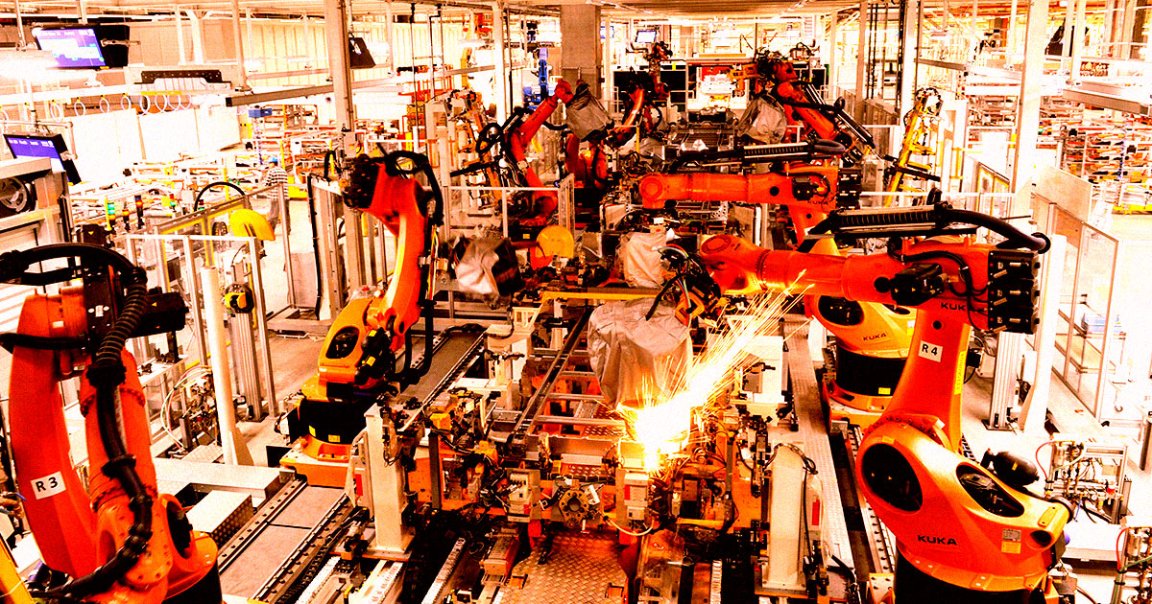
Rest in Peace
More and more companies are deploying robots to perform tasks alongside human coworkers. And those robot-worker interactions come with their own occupational hazards.
Case in point, a robotics company employee was crushed to death by a robot in a South Korean food handling factory after it failed to tell him apart from the box of vegetables it was handling at the time, the BBC reports.
The man, who was inspecting the robot, was reportedly grabbed and pushed against a conveyor belt, with the robot crushing both his face and chest.
It’s a particularly grisly reminder of the very real dangers that workers face as their employers become increasingly automated — not to mention the challenges of building robotic systems that can safely operate in the same spaces as humans.
Death and Robots
The man was employed by the company that made the robotic arm, which was meant to lift boxes of peppers and transfer them onto pallets nearby. The company had noticed issues with the robot’s sensors, leading to the employee checking its operations ahead of a test run, per the BBC.
It’s far from the first time a robot killed a person. Back in 1979, a robot at a Ford casting plant malfunctioned, smashing into the head of a 25-year-old worker, an incident often recognized as the first time a robot killed a human.
In July 2015, a man died at a Volkswagen production plant in Germany after being grabbed and crushed against a metal plate by a stationary robot.
And chances are we’re likely to see more incidents like it in the near future. The warehouse automation market is expected to balloon to a valuation of $34.4 billion by 2031 in the US and Europe, according to the latest research.
Manufacturers have become increasingly reliant on highly complex robots, which can take care of tasks like heavy lifting or assembling parts.
Some companies are planning to take this to its extreme — fully automated, “dark” factory floors that don’t even require the lights to be on during operations.
“Complete automation is what we all want to get towards, we want no human beings and the whole thing being run autonomously,” Atif Syed, CEO of England-based food packer company Wootzano, told CNBC last month.
But when these robots break down, experts say that humans will likely still be essential to get them working again. And that comes with its own risks, as the latest incident goes to show.
More on death and robots: Robot Kills Man at Volkswagen Plant…Human Error to Blame